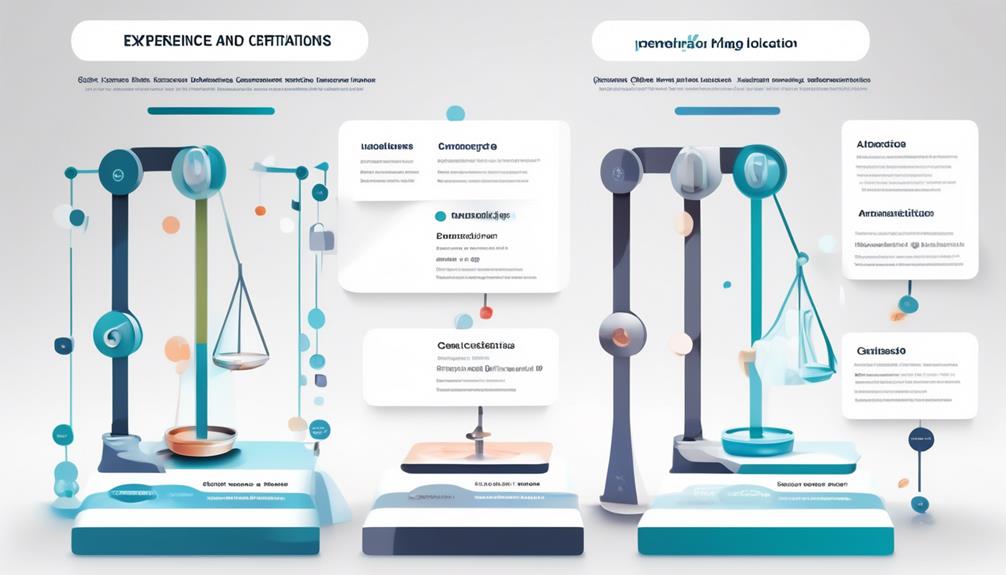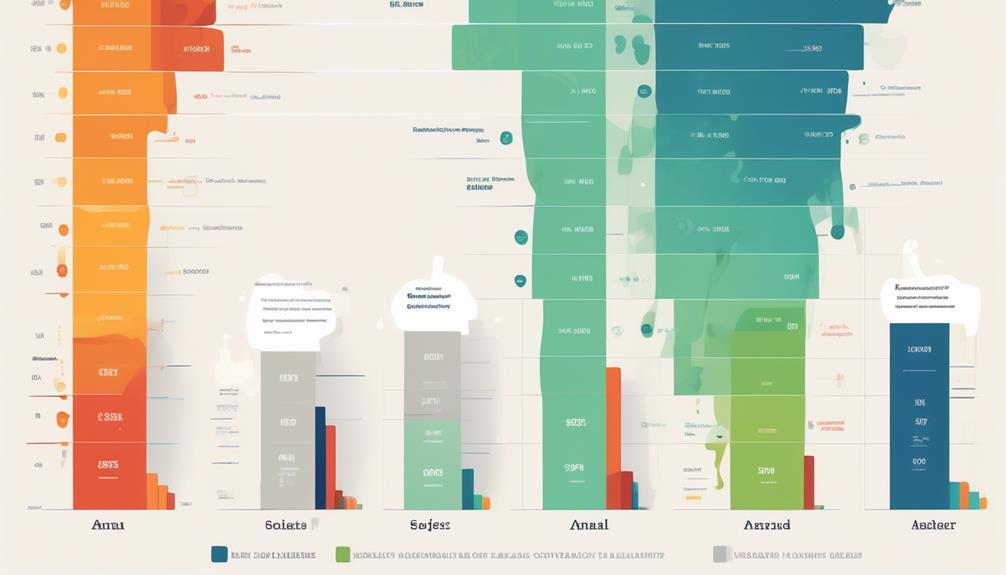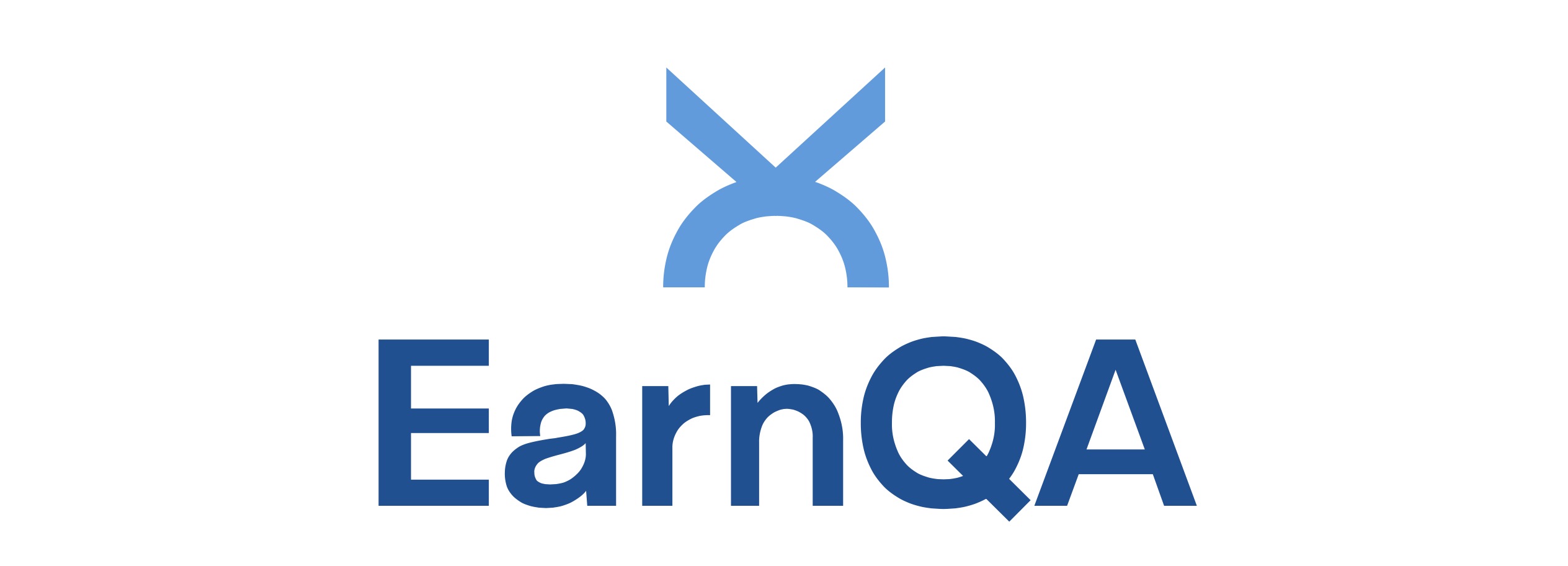Fundamentals of SQA
Become a Software Quality Assurance Engineer
Interested in becoming a Software Quality Assurance Engineer? Here's a guide on how to become one, including the necessary skills, education, and career path to pursue.

When analyzing the career path of a software quality assurance engineer, it’s essential to understand the critical role they play in ensuring the functionality and quality of software products.
Imagine a scenario where a mobile banking application suddenly crashes when a user attempts to transfer funds. The frustration and potential financial impact on the user could be significant. This is where a software quality assurance engineer steps in, meticulously testing and analyzing the application to prevent such issues.
Understanding the skills and steps required to embark on this career can be the key to making a meaningful impact in the software development industry.
Key Takeaways
- QA Engineers play a crucial role in monitoring every stage of the product development process and suggesting corrections and improvements.
- Attention to detail, communication, time management, problem-solving, and strong listening skills are essential skills for QA Engineers.
- QA Engineers should have technical skills such as coding, understanding the SDLC, writing test plans, familiarity with test automation tools, and effective manual testing techniques.
- To become a QA Engineer, one should earn a relevant degree, gain practical experience through internships or field work, pursue an Associate in Software Testing, and stay updated on the latest testing methods and industry trends.
What Does a QA Engineer Do?
As QA Engineers, we ensure that products meet quality standards before launch by:
- Monitoring every stage of the product development process
- Suggesting corrections and feature improvements
Our role involves:
- Optimizing product functionality
- Improving overall usability
- Analyzing testing results to implement solutions for quality and functionality
We utilize our skills in:
- Attention to detail
- Communication
- Time management
- Problem-solving
- Strong listening skills
Essential technical skills include:
- Coding
- Understanding the Software Development Life Cycle
- Writing test plans
To thrive as a QA Engineer, practical experience is crucial. Additionally, considering relevant certifications and staying informed about the latest trends in software quality assurance is beneficial for career advancement.
Essential Skills for QA Engineers

The acquisition of essential skills is crucial for QA Engineers to excel in their role and contribute to the quality and functionality of software products. To become proficient in this field, QA Engineers need to possess the following skills:
- Writing a Test Plan: QA Engineers must be adept at documenting objectives and testing processes for software products. This involves creating a comprehensive test plan that outlines the strategy, scope, resources, schedule, and deliverables of the testing activities.
- Understanding Test Automation Tools and Manual Testing Practices: It’s essential for QA Engineers to be familiar with both test automation tools like Selenium and effective manual testing techniques. This includes the ability to design, write, execute, and maintain automated test scripts as well as performing thorough manual testing when necessary.
- Strong Understanding of the Software Development Life Cycle (SDLC): QA Engineers need to have a deep knowledge of the different stages of the SDLC, including planning, analysis, design, development, testing, implementation, and maintenance. This understanding allows them to effectively integrate quality assurance and testing activities throughout the software development process.
Mastering these essential skills equips QA Engineers with the technical expertise and proficiency required to ensure the quality and reliability of software products.
Steps to Become a QA Engineer
After mastering the essential skills for QA Engineers, the next step is to outline the specific steps required to embark on the journey of becoming a QA Engineer.
The first crucial step is to earn a relevant degree in computer science or engineering. This provides a strong foundation in software development and quality standards.
Additionally, gaining practical experience through internships or field work is essential for understanding real-world testing processes.
It’s also beneficial to pursue an Associate in Software Testing and gain expertise in automated testing and auditing.
As one progresses in their QA Engineer career, obtaining a decade of experience in the field can open doors to advanced roles such as Software Quality Analyst.
Staying updated on the latest testing methods and industry trends is vital to ensuring the highest quality in product development.
Furthermore, developing technical skills in creating comprehensive Test Plans is essential for maintaining high-quality standards in the software industry.
Career Path for QA Engineers

Embarking on a career as a QA Engineer entails acquiring a relevant educational background in computer science or engineering, gaining hands-on experience, and obtaining industry-recognized certifications. The career path for QA engineers involves a systematic progression towards mastering the skills needed for ensuring software quality. Here are the key steps to navigate this career path:
- Obtain a Degree: A strong educational foundation, such as a degree in Computer Science or Software Engineering, provides the necessary theoretical knowledge and understanding of the software development process.
- Gain Practical Experience: Acquiring hands-on experience in software testing and auditing is crucial. This can be achieved through internships or entry-level positions, where one can develop the technical skills required for quality assurance.
- Obtain Industry-Recognized Certifications: Consider pursuing certifications relevant to software quality assurance, such as ISTQB Certified Tester or Certified Agile Tester. These certifications validate and enhance the expertise needed for a successful career in software quality assurance.
Following these steps, along with continuous learning and networking, can lead to a rewarding and successful career as a software quality assurance engineer.
Salary and Job Outlook for QA Engineers
Upon obtaining relevant educational background in computer science or engineering, gaining hands-on experience, and obtaining industry-recognized certifications, QA Engineers can anticipate a varied salary range influenced by factors such as experience and location.
Entry-level QA Engineers can expect to earn a decent starting salary, with the median annual wage for Quality Assurance Engineers and Testers being around $90,270 in May 2020, according to the U.S. Bureau of Labor Statistics. However, with several years of experience, QA Engineers can earn significantly higher salaries, especially in major tech hubs where the demand for their expertise is high.
Additional certifications, such as those offered by the American Society for Quality, and proficiency in open-source and proprietary software products can also contribute to higher salary prospects for QA Engineers.
It’s important to note that the job outlook for QA Engineers is promising, with a projected growth rate of 3% from 2019 to 2029, in line with the average for all occupations. As the reliance on technology and software products continues to grow, the demand for skilled QA Engineers is expected to remain strong.
Frequently Asked Questions
How Do I Become a Quality Assurance Engineer Software?
First, we understand the importance of becoming a quality assurance engineer in software.
Obtaining a relevant educational background in computer science or engineering, gaining practical experience through internships or entry-level positions, learning programming languages such as Java or Python, acquiring technical skills related to testing tools and frameworks, and considering relevant certifications like ISTQB Foundation Level or Certified Agile Tester are crucial steps in this process.
How Do I Start a Career in Software Quality Assurance?
To start a career in software quality assurance, we need to gain practical experience through internships or entry-level positions in software development or testing. Obtaining a relevant educational background in computer science, engineering, or information technology is essential.
Developing technical skills in software testing tools and programming languages, along with staying updated on the latest industry trends, will lay a strong foundation in software quality assurance.
How Do I Start Working as a QA Engineer?
We start working as QA engineers by obtaining a relevant educational background in computer science, engineering, or information technology.
We gain practical experience through internships or entry-level positions to develop technical skills in software testing and auditing.
We enhance communication skills for effective collaboration with developers, project managers, and stakeholders.
We consider obtaining certifications relevant to software quality assurance to set ourselves apart in the job market.
How Do I Become a QA With No Experience?
To become a QA with no experience, we should pursue a relevant degree or education in computer science or information technology for foundational knowledge.
Gain practical experience through internships or entry-level positions to build hands-on experience in software testing.
Develop technical skills in programming languages and testing tools.
Obtaining certifications from organizations like ISTQB or QAI can enhance knowledge and credentials.
Networking, attending industry events, and staying updated on the latest trends in software quality assurance are also crucial.
Conclusion
In conclusion, becoming a software quality assurance engineer is a complex and challenging journey that requires dedication, expertise, and a commitment to continuous learning.
It’s a career where attention to detail is crucial, and the ability to identify even the smallest of flaws is essential.
With the right skills and experience, a QA engineer can play a pivotal role in ensuring the high quality and functionality of software products, making it a truly rewarding and impactful profession.
At the helm of our content team is Amelia, our esteemed Editor-in-Chief. Her extensive background in technical writing is matched by her deep-seated passion for technology. Amelia has a remarkable ability to distill complex technical concepts into content that is not only clear and engaging but also easily accessible to a wide range of audiences. Her commitment to maintaining high-quality standards and her keen understanding of what our audience seeks are what make her an invaluable leader at EarnQA. Under Amelia’s stewardship, our content does more than just educate; it inspires and sets new benchmarks in the realm of QA education.
Fundamentals of SQA
Healthcare QA Analyst Pay Scale Breakdown
Discover the pay scale for Software Quality Assurance Analyst in the Healthcare industry. Learn about salary ranges, job responsibilities, and career growth opportunities in this field.

In the United States, a Software Quality Assurance Analyst employed within the healthcare industry typically earns an average salary of $90,122 per year. However, this amount can vary widely based on several factors, including the geographic area, level of experience, and the company that is employing them.
However, that’s just the tip of the iceberg when it comes to understanding the intricacies of compensation for QA Analysts in the healthcare sector. The wide range of salaries and the factors influencing them make for an intriguing exploration into the complexities of pay scale in this industry.
Uncovering the top-paying companies adds another layer of interest to the discussion.
Key Takeaways
- The average salary for Software QA Analysts in the healthcare industry is $90,122 per year, with additional cash compensation and total compensation averaging $6,343 and $90,489, respectively.
- Experience significantly impacts salary range, with QA Analysts with 7+ years of experience earning an average salary of $108,836, while those with 1 year of experience earn around $57,643.
- The top paying industries for QA Analysts are Financial Services, Management & Consulting, Insurance, Information Technology, and Human Resources & Staffing, with average salaries ranging from $85,054 to $164,655 per year.
- Location and choice of employer play a significant role in determining salary range, with states like California, Washington, and New Hampshire offering the highest average salaries, and top paying companies including Apple, Bloomberg L.P., Sysintelli, CGI, and System Soft Technologies.
Salary Range for Software QA Analyst in Healthcare
In our experience, the salary range for Software QA Analysts in the healthcare industry typically varies based on factors such as experience, location, and specific employer. According to our findings, the average salary for a Software QA Analyst in the healthcare industry is $84,146, with additional cash compensation averaging $6,343 and total compensation averaging $90,489.
Interestingly, QA Analysts in the healthcare industry with 7+ years of experience earn an average salary of $108,836, while those with 1 year of experience earn around $57,643. This substantial difference demonstrates the impact of experience on the salary range for Quality Assurance Analysts in the healthcare industry.
Moreover, it’s important to note that the top paying industries for Software Quality Assurance Analysts in the United States include Financial Services, Management & Consulting, Insurance, Information Technology, and Human Resources & Staffing. The top paying companies for Software Quality Assurance Analysts such as Apple, Bloomberg L.P., and Sysintelli, offer average salaries ranging from $85,054 to $164,655 per year.
Additionally, the highest paying states for Quality Assurance Analysts are California, Washington, and New Hampshire, with average salaries ranging from $81,826 to $83,752. These insights highlight the significant impact of location and specific employer on the salary range for Software QA Analysts in the healthcare industry.
Factors Affecting Pay for QA Analysts

How do location, education, and experience impact the salary range for quality assurance analysts?
- Location:
The geographic location plays a significant role in determining the salary range for quality assurance analysts. For instance, states such as California, Washington, and New Hampshire offer the highest average salaries for QA analysts, with California leading at an average of $83,752 annually. It’s essential to consider the cost of living and demand for QA analysts in a specific area when assessing potential salary offers.
- Education:
Higher levels of education, such as a bachelor’s or master’s degree in computer science, engineering, or a related field, can positively impact a QA analyst’s salary. Employers often value advanced education and may offer higher compensation to those with relevant degrees and certifications.
- Experience:
The level of experience also significantly influences the salary range for QA analysts. Senior roles such as engineer lead, senior QA analyst/lead, and senior QA engineer tend to command higher salaries. Additionally, individuals with several years of experience in the field may negotiate higher compensation packages.
Understanding how location, education, and experience impact QA analyst salaries is crucial for individuals seeking positions in one of the highest paying industries.
Top-Paying Companies for QA Analysts
Considering the impact of location, education, and experience on QA analyst salaries, it’s evident that the choice of employer also plays a significant role in determining potential compensation packages for professionals in the healthcare industry. In the United States, the healthcare industry ranks among the top 5 paying industries for QA Analysts, with an impressive median total pay of $93,626 per year. When it comes to the highest paying companies for QA Analysts in the healthcare industry, Apple stands out with an average salary of $164,655 per year, offering a compelling compensation package. Other top-paying companies include Bloomberg L.P., Sysintelli, CGI, System Soft Technologies, and SQA Labs, all of which provide competitive salaries and opportunities for additional pay.
To provide a clear comparison of the top-paying companies, the table below outlines the average annual salaries and the number of open jobs for QA Analysts at these companies in the healthcare industry.
Company Average Salary Open Jobs Apple $164,655 5,000 Bloomberg L.P. – – Sysintelli – – CGI – –
The healthcare industry offers lucrative opportunities for QA Analysts, with companies like Apple and CGI leading the way in providing substantial compensation packages.
Compensation Trends for QA Analysts

As software quality assurance analysts in the healthcare industry, we’ve observed notable shifts in compensation trends over the past few years.
The average salary for QA Analysts in healthcare is approximately $90,122 per year, with senior QA Analysts earning a median pay of $121,908 annually. The healthcare industry ranks among the top 5 paying industries for QA Analysts, offering competitive median total pay.
Moreover, top-paying companies in the healthcare sector, such as Apple, Bloomberg L.P., and Sysintelli, offer salaries ranging from $85,054 to $164,655 per year, indicating a range of compensation opportunities for QA Analysts.
These trends underscore the industry’s recognition of the importance of quality assurance in healthcare software and the willingness to compensate professionals accordingly.
Additionally, the presence of roles like QA Analyst IV, with a median salary of $124,423 per year, reflects the opportunities for career growth and higher compensation within the healthcare industry.
These compensation trends affirm the industry’s commitment to quality assurance and its recognition of the value QA Analysts bring to healthcare software development.
Pay Scale Comparison by Industry
In examining pay scales for software quality assurance analysts, it becomes evident that the healthcare industry offers lucrative compensation, positioning it among the top-paying sectors for QA Analysts. The median salary for a QA Analyst in the healthcare industry is $90,122 per year, and top companies like CGI, Sysintelli, and SQA Labs are known for offering competitive pay.
When comparing industries, the healthcare sector ranks among the top 5 highest paying industries for QA Analysts, with a median total pay of $93,626. This demonstrates the industry’s commitment to rewarding QA Analysts competitively.
Moreover, the healthcare industry provides opportunities for career growth and job satisfaction, making it an attractive option for professionals seeking both financial reward and fulfilling work.
As software quality assurance analysts, especially those in the US, consider their career options, the healthcare industry stands out for its robust pay scale and potential for long-term financial security.
Frequently Asked Questions
How Much Does a Software Quality Assurance Analyst Make in the Us?
We make an average of $84,146 per year, with additional cash compensation of around $6,343.
Top paying industries include Financial Services at $110,788 and Insurance at $101,169.
Apple pays an average of $109,132, and Google pays $111,609.
The highest paying states are California, Washington, and New Hampshire, with average salaries ranging from $81,826 to $83,752.
What Is the Highest Salary for a Quality Assurance Analyst?
The highest salary for a quality assurance analyst in the healthcare industry is an impressive $164,655 per year, offered by Apple. This top-paying position showcases the potential for substantial earning in the field.
It’s essential to pursue opportunities with companies like Apple to maximize our earning potential and advance our careers. Such high salaries reflect the value and demand for skilled quality assurance analysts in the healthcare industry.
What Does a QA Analyst Do in Healthcare?
In the healthcare industry, QA analysts play a crucial role in testing and analyzing software and systems to ensure they meet industry and company standards. They develop and implement testing plans, test cases, and test scripts specific to healthcare software.
QA analysts also document findings, report defects, and track resolutions. Their work significantly contributes to patient safety, data security, and overall quality of healthcare systems.
What Is the Highest Salary for a QA Analyst?
We’ve found that the highest salary for a QA Analyst is $124,423 per year for the role of QA Analyst IV.
This information can be valuable for anyone looking to advance in the field.
It’s crucial to stay informed about salary ranges to make the best career decisions.
Conclusion
In conclusion, the pay scale for software quality assurance analysts in the healthcare industry is diverse and can be influenced by various factors.
Like a patchwork quilt, the range of salaries reflects the unique blend of experience, location, and company size.
As the demand for QA analysts in healthcare continues to grow, it’s important for professionals to consider these factors and explore opportunities with top-paying companies to maximize their earning potential.
Rick, our Software Quality Assurance Writer, is the creative force behind many of our insightful articles and course materials. His unique background in software development, fused with his natural flair for writing, allows him to convey complex QA concepts in a way that is both informative and captivating. Rick is committed to keeping abreast of the latest trends and advancements in software testing, ensuring that our content remains not just relevant, but at the forefront of the field. His significant contributions are instrumental in helping us fulfill our mission to deliver premier QA education.
Fundamentals of SQA
Start Your QA Software Career: Entry Essentials
Interested in quality assurance software? Learn how people get into the field and what it takes to succeed in this competitive industry.

Is it correct to state that a specific educational background is required to get into the field of software quality assurance? Many people wonder about the exact path to break into this area, and it’s not always as straightforward as one might think.
While a degree in computer science or engineering is often recommended, there are other important factors to consider. From practical skills to career opportunities and professional development, there’s a lot to explore when it comes to entering the world of quality assurance software.
Let’s uncover the key steps and considerations for aspiring professionals looking to carve out a career in this dynamic industry.
Key Takeaways
- The educational background in computer science, engineering, or mathematics provides a strong foundation for a career in QA software testing.
- Acquiring practical skills in manual testing and automation tools, as well as gaining hands-on experience through internships or projects, is essential.
- Staying updated with the latest advancements in software development and QA methodologies is important for continuous growth in the field.
- Networking, joining professional organizations, and actively participating in practical software testing scenarios are crucial for career advancement and collaboration opportunities.
Educational Backgrounds
When considering educational backgrounds for a career in quality assurance software, majoring in computer science, engineering, or mathematics provides a strong foundation in QA software testing. A computer science degree equips us with the technical skills necessary for software testing, such as programming, data structures, algorithms, and software design principles. Engineering degrees, particularly in fields like software or computer engineering, offer a deep understanding of systems and software development processes, which are essential for QA roles. Mathematics majors develop analytical and problem-solving skills that are crucial for identifying and troubleshooting software issues.
Networking with classmates and instructors during our degree program can provide valuable employment and collaboration opportunities. It’s important to plan our educational path carefully, enrolling in relevant courses such as operating systems software, statistics, and programming to enhance our technical education. By gaining a strong technical education background, we can expand our job opportunities and command a higher salary in the QA industry.
Pursuing a bachelor’s degree is a solid starting point, but we should also consider post-graduate degrees for management or teaching positions in the future.
Practical Skills

After gaining a strong foundation in computer science, engineering, or mathematics through formal education, it’s essential to acquire practical skills in quality assurance (QA) software testing to effectively apply theoretical knowledge in real-world scenarios.
As software quality assurance (QA) professionals, we must develop technical skills in manual testing and automation tools to ensure the reliability and functionality of software systems. Practical experience, gained through internships or hands-on projects, is crucial for mastering the intricacies of software testing and honing problem-solving abilities in diverse testing scenarios.
Staying updated with the latest advancements in software development and QA methodologies is fundamental to excel in this field. Continuous learning and participation in training programs are indispensable for evolving as a competent QA professional. Actively engaging in practical software testing scenarios not only enhances our technical skills but also fosters a deep understanding of industry best practices.
Furthermore, joining professional organizations and leveraging networking opportunities can significantly expand our career prospects and provide valuable insights into the evolving landscape of QA.
Career Opportunities
Quality assurance software testing offers a wide range of career opportunities in various industries, including software production, video games, digital products, web platforms, and communication networks.
As software testers, we can specialize in front-end testing, back-end testing, security testing, writing test plans, and systems testing. The diverse types of testing, such as black-box testing, white-box testing, gray-box testing, manual testing, and automated testing, create multiple career paths within quality assurance.
To advance in this tech job, it’s essential to work with computer languages, object-oriented languages, frameworks, and project management software. Continuous learning and growth are crucial for career advancement. Staying updated with industry trends, participating in training programs, and networking with other QA professionals are vital.
In the tech industry, the role of a QA Engineer is highly valued as they ensure the quality and reliability of software products. The demand for skilled professionals in QA testing is evident, and the career opportunities are vast for those who are methodical, detail-oriented, and passionate about maintaining high standards in the software industry.
Entry-Level Positions

Entry-level positions in quality assurance software testing require a strong foundation in relevant majors such as computer science, engineering, or math.
To secure a position in this field, individuals should consider the following steps:
- Gain practical experience and expand your professional network through internships and hands-on training. This provides valuable exposure to the industry and allows for the application of theoretical knowledge in real-world scenarios.
- Research accredited institutions offering relevant qualifications and consider networking with classmates and instructors for future employment opportunities. Pursuing advanced degrees or certifications, such as an Associate in Software Testing, can enhance qualifications for QA roles.
- Subscribe to industry-related blogs and magazines, engage in STEM classes and activities, and stay updated with industry trends and developments to explore interests in QA. Keeping abreast of the latest technology and methodologies is essential for success in this field.
Professional Development
Gaining qualifications and experience through internships and networking with industry professionals sets the foundation for continuous professional development in quality assurance software testing.
As QA Engineers and Software Testers, we understand the significance of technical education and the job search process. Networking with classmates and instructors is crucial for future employment and collaboration opportunities.
Internships provide valuable hands-on experience in using testing tools, understanding the Development Life Cycle, and working alongside experienced professionals. Continuous learning and growth are essential in this field, requiring us to stay updated with industry trends and participate in training programs and workshops.
Additionally, joining professional organizations such as the American Society for Quality and the Society of Quality Assurance expands our network and job opportunities.
Developing a strong resume, preparing for interviews, and gaining relevant certifications are vital steps to advance our careers in Quality Assurance. Professional development in this field demands a methodical and analytical approach, ensuring we remain at the forefront of industry standards and best practices.
Frequently Asked Questions
How Do I Get Into Quality Assurance Software?
We get into quality assurance software by pursuing high-quality training in computer science, engineering, or math to gain the necessary skills. Practical experience through internships and hands-on learning enhances our qualifications.
Staying updated with industry trends, participating in training programs, and continuously improving our problem-solving and analytical skills are crucial. Networking with industry professionals and tailoring our application documents to match job postings also expands our job opportunities.
How Do I Start a Career in Quality Assurance?
We start a career in quality assurance by pursuing a relevant major like computer science or engineering. We gain practical experience through internships and familiarize ourselves with various testing types.
Enhancing our skills in programming languages and staying updated with industry trends is crucial. Networking with other QA professionals for continuous learning is also important.
Overcoming the objection that it may take time, we commit to ongoing learning and growth in this methodical and analytical field.
How Hard Is It to Get a Job as a Qa?
Getting a job as a QA can be challenging, but with the right skills and approach, it’s achievable. We emphasize continuous learning, networking, and staying updated with industry trends.
Gaining relevant certifications and professional experience through internships and freelance opportunities enhances your chances.
Utilizing job boards, career platforms, and referrals while participating in training programs maximizes your job search success.
It requires dedication, but the rewards are worth it.
How Do I Become a Quality Assurance Engineer Software?
Becoming a quality assurance engineer in software involves gaining a strong understanding of software development, testing methodologies, and tools. It requires learning programming languages, test automation, and honing analytical skills to identify and resolve complex issues.
Obtaining relevant certifications and gaining hands-on experience through internships or entry-level positions is crucial. Continuous learning and staying updated with industry trends is essential in this dynamic field.
Conclusion
In conclusion, getting into quality assurance software is no easy feat. It requires dedication, continuous learning, and honing of skills. It’s a world where every detail matters, and where the tiniest mistake can have significant consequences.
But for those who are passionate about ensuring quality and continuous improvement, the rewards are immeasurable. It’s a challenging yet fulfilling journey that offers endless opportunities for personal and professional growth.
Rick, our Software Quality Assurance Writer, is the creative force behind many of our insightful articles and course materials. His unique background in software development, fused with his natural flair for writing, allows him to convey complex QA concepts in a way that is both informative and captivating. Rick is committed to keeping abreast of the latest trends and advancements in software testing, ensuring that our content remains not just relevant, but at the forefront of the field. His significant contributions are instrumental in helping us fulfill our mission to deliver premier QA education.
Fundamentals of SQA
Navigating Software Quality Assurance Job Locations
Looking for jobs in software quality assurance? Explore various industries such as technology, healthcare, finance, and more to find opportunities in software quality assurance.

As we navigate the landscape of software quality assurance, it seems as though we’ve reached a crossroads, encircled by a multitude of paths leading to diverse career opportunities.
The demand for professionals in this field has been steadily growing, and the avenues for SQA jobs are as diverse as the industries that rely on robust software.
Curious to know where these opportunities lie and how to embark on a fulfilling career in software quality assurance?
Stick with us as we unravel the thriving locations for SQA jobs, highlight the in-demand job titles, and offer strategies for landing coveted roles in this dynamic field.
Key Takeaways
- Insurance companies like COUNTRY Financial and Honeywell, finance companies like AmeriFlex, aerospace giants like Boeing, and technology solution providers like Origami Risk LLC offer job opportunities in Software Quality Assurance.
- Thriving locations for SQA jobs include Bloomington, IL, Alpharetta, GA, and Madison, AL.
- SQA professionals can transition into roles in product management, DevOps, and quality engineering.
- In-demand SQA job titles include Software Development Engineer in Test (SDET), Sr Software Quality Specialist, Software Quality Assurance Analyst, Software Technical Analyst, and Quality Assurance Engineer.
SQA Job Opportunities by Industry
In our exploration of SQA job opportunities by industry, we find that various sectors offer a diverse range of positions for professionals in the field.
Insurance companies such as COUNTRY Financial and Honeywell are seeking skilled individuals for roles like Software Quality Assurance Analyst and Quality Assurance Engineer.
Finance companies like AmeriFlex are hiring for Quality Assurance Analyst jobs.
Aerospace giants like Boeing are offering positions for Quality Assurance Analysts, Engineers, and Software Development Engineers in Test (SDET).
Technology solution providers like Origami Risk LLC are seeking Sr. Software Quality Specialists and Quality Assurance Engineers.
These positions require proficiency in Agile methodologies, Python, database operations, GitLab pipelines, life insurance processes, performance testing, and cloud-based SaaS solutions.
The sheer breadth of opportunities across these industries reflects the growing demand for QA professionals and the diverse career paths available, including transitions to product management, DevOps, customer experience leadership, and enterprise architecture.
Thriving Locations for SQA Jobs

Thriving in various locations such as Bloomington, IL, Alpharetta, GA, and Madison, AL, SQA jobs offer diverse opportunities with remote work options and hybrid schedules, reflecting the adaptable nature of the field.
These locations are home to companies such as COUNTRY Financial, Honeywell, Boeing, and Origami Risk LLC, which actively seek SQA professionals. These positions often focus on insurance processes and Agile methodologies.
With over 15,000 SQA job opportunities in the United States, there’s a robust demand for SQA professionals across different job titles and companies.
Additionally, SQA professionals can leverage their organizational ability and critical thinking skills to transition into roles in product management, DevOps, and quality engineering.
Continuous learning is crucial for SQA professionals to stay updated with industry trends, performance engineering techniques, and software test automation tools.
This adaptability and the diverse opportunities available in these locations make them thriving hubs for SQA jobs.
Career Paths for SQA Professionals
Exploring various career paths for Software Quality Assurance (SQA) professionals involves considering the diverse opportunities available in the field and the potential for leveraging skills in areas such as product management, DevOps, and quality engineering. As SQA professionals, we can advance our careers by transitioning into roles such as Quality Assurance Analyst, Software QA, or Quality Assurance Manager. The table below outlines the key responsibilities and skills required for each of these career paths:
Career Path Responsibilities Required Skills Quality Assurance Analyst Develop and execute software test plans, identify defects, and ensure compliance with quality standards. Strong analytical skills, attention to detail, knowledge of testing methodologies and tools. Software QA Oversee the entire software development process to ensure product quality, identify areas for improvement, and implement best practices. In-depth understanding of software development lifecycle, coding skills, communication abilities. Quality Assurance Manager Lead a team of QA professionals, establish quality standards, and collaborate with cross-functional teams to enhance overall product quality. Project management, leadership, strategic planning, and decision-making skills.
These career paths offer SQA professionals the opportunity to progress into more challenging and rewarding roles, leveraging their expertise to drive quality and innovation within the software development lifecycle.
In-Demand SQA Job Titles

With a growing demand for skilled professionals in the field of Software Quality Assurance (SQA), numerous job titles have emerged to cater to the diverse needs of the industry. These titles include Software Development Engineer in Test (SDET), Sr Software Quality Specialist, Software Quality Assurance Analyst, Software Technical Analyst, and Quality Assurance Engineer.
Each of these positions plays a critical role in ensuring the quality and reliability of software products. The Software Development Engineer in Test (SDET) is responsible for developing and implementing testing processes within the software development lifecycle, while the Sr Software Quality Specialist oversees and manages the quality assurance processes within a company.
The Software Quality Assurance Analyst focuses on identifying and resolving software defects, ensuring that the final product meets quality standards. Similarly, the Software Technical Analyst and the Quality Assurance Engineer roles involve analyzing, testing, and evaluating software systems to ensure they meet specified requirements and standards.
These in-demand SQA job titles reflect the varied responsibilities and specializations within the software quality assurance field, offering opportunities for professionals with diverse skill sets and expertise.
Strategies for Landing SQA Jobs
As professionals seeking to secure positions in Software Quality Assurance (SQA), we can capitalize on our expertise in Agile methodologies and proficiency in Python, along with a deep understanding of data structures, to qualify for SQA roles at esteemed companies like COUNTRY Financial and Honeywell. To enhance our chances of landing SQA jobs, we should also consider gaining experience in developing GitLab pipelines and acquiring knowledge of life insurance processes, which are sought after by companies like AmeriFlex, Boeing, and Origami Risk LLC. Additionally, developing software solutions, supporting testing and problem-solving, and executing quality assurance testing will prepare us for SQA roles at various companies, including positions like Software Quality Analyst – Manual Tester at Cantaloupe Inc, Optomi, Vaporstream, Inc., and IDR, Inc.
Strategies for Landing SQA Jobs Gain expertise in Agile methodologies Proficiency in Python Deep understanding of data structures Develop GitLab pipeline experience Acquire knowledge of life insurance processes Explore software testing and problem-solving Transition to different roles using transferable skills Explore app development for expanded career opportunities Pursue positions at actively hiring companies
Frequently Asked Questions
What Is the Job of a Software Quality Assurance?
As software quality assurance analysts, we develop and execute test plans and cases to ensure software quality. We collaborate with cross-functional teams to identify and report defects, conducting thorough regression testing.
Strong knowledge of testing methodologies, test case design, and test automation tools is essential. This role offers an average salary of $78,000 per year, with opportunities for career growth and specialization.
Continuous learning is crucial to stay updated and access career advancement opportunities.
Is Software Quality Assurance in Demand?
We find that software quality assurance is indeed in high demand, with over 15,000 available jobs in the United States.
Skills in Agile methodologies, Python, database operations, and GitLab pipelines are sought after.
The average salary for QA analysts is $78,000 per year, with potential to earn up to $110,000.
Continuous learning is essential, focusing on performance engineering, software test automation tools, and reducing software defects.
How Hard Is It to Get a Job as a Qa?
Getting a job as a QA can be challenging, but our dedication and expertise make it achievable. We prioritize continuous learning, communication, and collaboration on automation projects.
Our skills open doors to various career paths, such as product management and quality engineering. Staying updated with quality standards and exploring app development enhances our career prospects.
With perseverance and strategic career development, we can secure rewarding opportunities in the dynamic field of software quality assurance.
Where Do QA Testers Work?
Where do QA testers work?
QA testers work in various positions, such as Software Development Engineer in Test (SDET) at companies like COUNTRY Financial and Honeywell. They can also work remotely as Software Quality Assurance Analysts at companies like AmeriFlex and Origami Risk LLC.
These roles require skills in Agile methodologies, Python, data structures, and GitLab pipelines, among others.
QA testers are responsible for designing solutions, executing testing procedures, and collaborating with development teams to resolve software issues.
Conclusion
In the ever-evolving landscape of software quality assurance, opportunities abound like stars in the night sky. With the right skills and determination, SQA professionals can navigate the constellations of job titles and industries to find their perfect fit.
By honing their expertise and embracing new challenges, they can illuminate their career path and reach for the brightest opportunities.
The possibilities are endless, and the journey is full of promise and potential.
Rick, our Software Quality Assurance Writer, is the creative force behind many of our insightful articles and course materials. His unique background in software development, fused with his natural flair for writing, allows him to convey complex QA concepts in a way that is both informative and captivating. Rick is committed to keeping abreast of the latest trends and advancements in software testing, ensuring that our content remains not just relevant, but at the forefront of the field. His significant contributions are instrumental in helping us fulfill our mission to deliver premier QA education.
-

 Resources and Training3 weeks ago
Resources and Training3 weeks agoMaster Selenium Webdriver Training Today!
-

 SQA Techniques and Tools3 weeks ago
SQA Techniques and Tools3 weeks agoUnveiling the Role of Software Quality Assurance: What Do They Really Do?
-

 Fundamentals of SQA1 month ago
Fundamentals of SQA1 month agoUnderstanding Definition and Scope of Software Quality Assurance (SQA)
-

 SQA Best Practices4 weeks ago
SQA Best Practices4 weeks agoElevate Your Tech with Software Quality Assurance
-

 Fundamentals of SQA4 weeks ago
Fundamentals of SQA4 weeks agoKPI for Software Quality Assurance
-

 SQA Techniques and Tools4 weeks ago
SQA Techniques and Tools4 weeks agoExpert Usability Testing Strategies Revealed
-

 SQA Best Practices4 weeks ago
SQA Best Practices4 weeks agoTop SQA Best Practices for Quality Assurance
-

 SQA Techniques and Tools4 weeks ago
SQA Techniques and Tools4 weeks agoExpert Software Testing Services for Quality Assurance
















